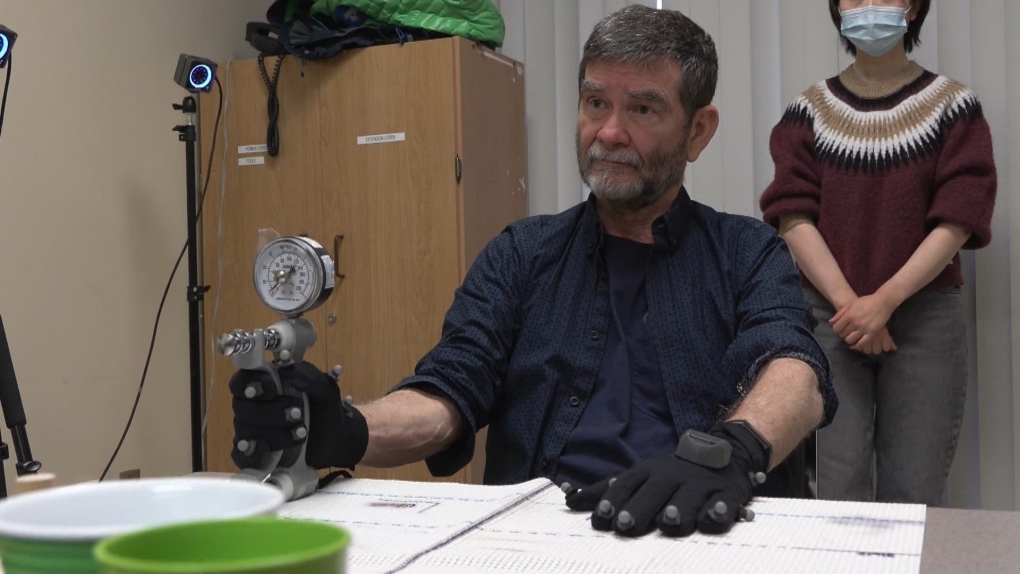But can it extend the fingers clenched due to spasticity? I can't see how any patient with spastic fingers could ever get this on. That's my problem. If all it does is monitor movements it is useless for a huge proportion of survivors.
Is it any better than all these other gloves?
Many gloves out there. Which is the best? Your doctor better know the answer.
FES-Robotic Glove (1)
Gyroscopic glove (1)
HERO Grip Glove (1)
music glove (1)
RAPAEL Smart Glove (5)
SaeboGlove (1)
VTS Glove (1)
EsoGlove (1)
The latest here:
'Smart glove' developed at UBC aims to aid stroke recovery
Recovering from a stroke can be a long journey.
Just ask Derick Sinclair.
He's been trying everything possible since his stroke more than a decade ago to regain maximum mobility and strength on his left side.
Sinclair is among a group of stroke survivors trying out a new “smart glove” at the G.F. Strong Rehabilitation Centre.
The glove tracks hand and finger movements, information that can then
be used to identify where Sinclair needs to focus his exercise.(What if you can't exercise your fingers like me?)
The glove is being developed at the University of British Columbia in partnership with Vancouver startup Texavie.
"Many of these patients require frequent assessment(I consider assessments totally useless unless you have EXACT REHAB PROTOCOLS that deliver finger recovery!) of their movements,” said Dr. Peyman Servati, Texavie’s CEO and a UBC professor, in an interview with CTV News.
“We need to see how well they're moving and then they need to modify for example their exercises and routine to get the best rehab and recovery.”
The glove also takes advantage of artificial intelligence to help capture movement.
"It has machine learning all embedded within the software to recognize the movement,” explained Dr. Janice Eng, a leading stroke rehabilitation specialist at UBC, who also works with Vancouver Coastal Health.
“So that's actually how we know how much the wrist is actually moving, how much the hand is actually opening, is through artificial intelligence. So we are applying those algorithms now.”
The glove has potential for other uses, including in video games and movies.
But for Sinclair, he's hoping that by taking part in this research he helps makes a difference.
“I believe, if you participate in programs like this, it improves the likelihood of finding a solution,” he said. “Maybe not for myself, but for other stroke victims – I call them victims, because a stroke really victimizes your life – to have a better life.”
The findings from research involving the glove were recently published in Nature Machine Intelligence. The glove is not available for general use at this point, but Servati hopes to eventually bring it to the broader consumer market.

No comments:
Post a Comment